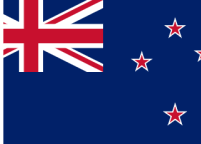Brief Overview of Visa Overstaying in New Zealand
Visa Overstaying refers to remaining in a country beyond the permitted duration of stay as indicated on the visa. This is a common issue travellers and immigrants face worldwide, often due to misunderstandings, oversight, or unforeseen circumstances. In New Zealand, while less widespread than in some other countries, it is still a significant issue that requires attention. Addressing this situation promptly is crucial, as overstaying can lead to serious legal, financial, and immigration consequences.
Importance of Addressing the Issue Promptly

Taking immediate action is vital. The longer an individual overstays, the more complicated and severe the repercussions can become. Promptly addressing the issue demonstrates a willingness to comply with immigration laws and can sometimes lead to more lenient treatment by immigration authorities. In New Zealand, the government takes immigration rules seriously, and failing to comply can lead to severe consequences. Prompt action can mitigate potential legal issues and help negotiate more favourable outcomes with immigration authorities.
Understanding Visa Overstay: Definition and Legal Implications

Definition: Visa overstaying occurs when an individual stays in a country after their visa has expired or after violating the terms of their visa. In New Zealand, a visa overstay occurs when a person remains in the country after their visa has expired or violated visa conditions.
Legal Implications: Overstaying a visa can lead to:
- Deportation or removal from the country.
- A ban on re-entry for a certain period can range from a few years to a lifetime ban.
- Fines or other legal penalties.
- Sometimes, it can even lead to imprisonment, depending on the country’s immigration policies.
- In New Zealand, consequences can include deportation, being banned from re-entering for a period based on the severity of the overstay, legal action, including fines or court proceedings, and difficulty in obtaining future visas, both in New Zealand and other countries.
Statistics on Visa Overstays (Global/Regional Data Points)
- Global Perspective: According to the International Migration Report by the United Nations, a significant percentage of illegal immigration in various countries is due to visa overstays. For instance, in the United States, it is believed that around 40-50% of the undocumented immigrant population initially entered the country through legal means but remained beyond the duration of their visas.
- Regional Data Points:
- In the European Union, the Entry/Exit System (EES) aims to systematically record non-EU nationals’ entry and exit data, highlighting the scale of visa overstays.
- In Australia, the Department of Home Affairs reported that in the fiscal year 2017-2018, around 62,000 people were living in the country who had overstayed their visas.
- Statistics in New Zealand: As of 2017, Immigration New Zealand (INZ) estimated around 15,000 overstayers in the country, predominantly from the Pacific Islands, with smaller numbers from Asia, Europe, and the Americas.
Immediate Consequences of Overstaying a Visa

- Legal Penalties vary by country but commonly include deportation, fines, or a temporary ban on re-entry.
- Impact on Future Travel and Visa Applications: Overstaying can severely impact one’s ability to obtain visas in the future. It often leads to stricter scrutiny in subsequent visa applications and can result in outright denials.
- Case Studies/Examples:
- Case Study 1: In 2019, a British tourist in Thailand overstayed her visa by a few days and faced a fine and a temporary ban from re-entering Thailand.
- Case Study 2: A U.S. Department of Homeland Security study highlighted that over 700,000 visitors overstayed their visas in 2017. One notable case involved a student who overstayed their visa for several months and was later barred from re-entering the U.S. for five years.
- In New Zealand, Overstayers may face legal action, including deportation orders and exclusion periods during which they cannot return to New Zealand. A history of overstaying can severely impact an individual’s ability to obtain future visas in New Zealand. It can lead to increased scrutiny in future applications and potential denials.
- Case Study 1 (NZ): A study found that Pacific Islanders in New Zealand, particularly from Samoa and Tonga, were disproportionately represented in overstaying statistics, often due to family ties and employment opportunities.
- Case Study 2 (NZ): In a notable case, an individual overstayed their work visa for employment reasons and faced deportation. This case was highlighted in media discussions about the need for more flexible immigration policies in specific sectors.
Step-by-Step Guide to Resolving an Overstay in New Zealand

Immediate Actions to Take
- Assess the Situation: Determine how long you have overstayed and why.
- Gather Documentation: Compile all relevant documents, including your passport, expired visa, travel records, and any supporting documents that explain the reason for overstaying.
- Create a Plan: Decide whether you will apply for a new visa extension or prepare to leave the country.
Contacting Immigration Authorities: Procedures and Tips
- Contact Immigration New Zealand (INZ): Do this as soon as possible to discuss your situation. It’s better to approach INZ than to be found by them voluntarily.
- Be Honest and Cooperative: Provide accurate information about your situation. Honesty can influence how INZ handles your case.
- Understand Your Options: Ask about possible solutions, such as applying for a new visa or an extension.
Legal Considerations and Seeking Legal Advice
- Seek Legal Advice: Consult an immigration lawyer to understand your rights and options.
- Understand the Legal Process: Be aware of the potential for legal proceedings, including deportation hearings.
- Prepare for Compliance: Be ready to comply with any legal requirements INZ or the court set.
Applying for Visa Extension or Renewal
- Criteria and Eligibility: Check if you are eligible for a new visa or an extension. This can depend on your current visa type, the duration of your overstay, and your reasons for overstaying.
- Necessary Documentation: Prepare documents such as a completed visa application form, current passport, proof of financial stability, and other relevant information.
- Application Process: Submit your application online or at an INZ office. Be prepared for an interview or additional requests for information.
Success Rates and Data Points
- Success rates for visa applications post-overstay can vary. In general, shorter overstays with valid reasons (like medical emergencies) have higher chances of successful resolution.
Special Cases and Considerations
- Overstaying Due to Unforeseen Circumstances: If your overstay is due to reasons like health issues or travel restrictions, provide evidence (like medical reports or official travel advisories) to support your case.
- Procedures for Vulnerable Groups:
- Minors: The process may involve child welfare authorities. The focus is usually on the child’s best interests.
- Asylum Seekers: If claiming asylum, you’ll need to apply for refugee status. Provide evidence of the risks you face in your home country.
By following this guide, individuals who have overstayed their visa in New Zealand can take informed steps towards resolving their situation. It’s essential to act promptly and seek professional advice to navigate the complexities of immigration law effectively.
Prevention and Best Practices
Tips to Avoid Overstaying a Visa in New Zealand
- Understand Your Visa Conditions: Familiarize yourself with the terms of your visa, including the duration of your stay and any restrictions.
- Keep Track of Dates: Mark your visa expiry date in your calendar and set reminders.
- Stay Informed: Be aware of any changes in New Zealand’s immigration policies that could affect your visa status.
- Plan Ahead: If you need to extend your stay, start the visa renewal process well before your visa expires.
- Maintain Valid Documentation: Keep your passport and other travel documents current.
- Seek Advice when in Doubt: If you’re unsure about any aspect of your visa, consult with an immigration expert or the INZ.
Importance of Understanding Visa Conditions
- Avoiding Legal Issues: Understanding your visa conditions helps prevent unintentional breaches of immigration law.
- Ensuring Smooth Travel: Compliance with visa conditions ensures that future travel and visa applications are not jeopardised.
- Stress Reduction: Being clear about your visa limits and requirements can significantly reduce the stress associated with international travel and stay.
Conclusion
In resolving visa overstays in New Zealand, it’s crucial to act swiftly and responsibly. Assess your situation, consult with licensed immigration adviser or Immigration New Zealand (INZ) , and seek legal advice if necessary. Understanding and adhering to visa regulations is critical to maintaining your legal status. Remember, seeking professional guidance early can significantly aid in efficiently navigating and resolving immigration complexities.
About ICL Immigration
ICL Immigration, based in Auckland, is an established licensed immigration adviser and immigration consultant with over 20 years of experience and a remarkable 97% approval rate. We’ve helped over 1,000 immigrants realise their New Zealand settlement dreams.
We specialise in various visa services, including student, residency, work visas, complex cases and business-related services like employer accreditation. We ensure personalised solutions for individuals and businesses aiming to navigate New Zealand’s immigration landscape successfully.
Disclaimer:
For the latest data and more detailed information, always refer to the official Immigration New Zealand or New Zealand government website.
Reference
1.https://www.immigration.govt.nz/about-us/research-and-statistics/statistics














